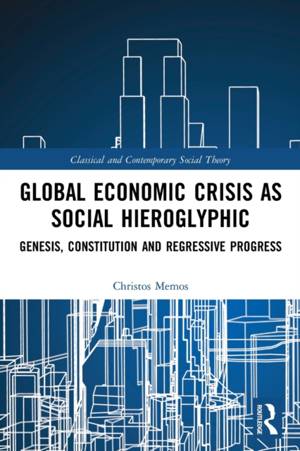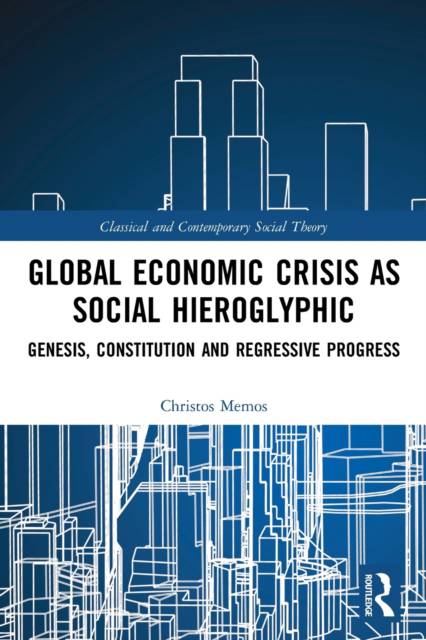
- Afhalen na 1 uur in een winkel met voorraad
- In januari gratis thuislevering in België
- Ruim aanbod met 7 miljoen producten
- Afhalen na 1 uur in een winkel met voorraad
- In januari gratis thuislevering in België
- Ruim aanbod met 7 miljoen producten
Global Economic Crisis as Social Hieroglyphic
Genesis, Constitution and Regressive Progress
Christos MemosOmschrijving
This book examines the 2008 global economic crisis as a complex social phenomenon or "social hieroglyphic", arguing that the crisis is not fundamentally economic, despite presenting itself as such. Instead, it is considered to be a symptom of a long-standing, multifaceted, and endemic crisis of capitalism which has effectively become permanent, leading contemporary capitalist societies into a state of social regression, manifest in new forms of barbarism. The author offers a qualitative understanding of the economic crisis as the perversion, or inversion, of the capitalistically organized social relations. The genesis of the current crisis is traced back to the unresolved world crisis surrounding the Great Depression in order to map the course and different "inverted forms" of the continuous global crisis of capitalism, and to reveal their inner connections as derivative of the same social constitution. From a historical and interdisciplinary perspective, the book expounds critical social theory, elaborating on the intersection between the early critical theory of the Frankfurt School - mainly Adorno, Horkheimer, and Marcuse - and the "social form" analysis and the critique of global political economy. Global Economic Crisis as Social Hieroglyphic critically addresses the permanent character of the 1920s-1930s crisis and the "crisis theory" debates; the political crisis in Eastern Europe (1953-1968); the crisis of Keynesianism; the crisis of subversive reason; the crisis, negative anthropology and transformations of the bourgeois individual; the state of social regression and the destructive tendencies after the rise of neoliberalism; and finally, the 2008 financial crisis and its ongoing aftermath.
Specificaties
Betrokkenen
- Auteur(s):
- Uitgeverij:
Inhoud
- Aantal bladzijden:
- 182
- Taal:
- Engels
- Reeks:
Eigenschappen
- Productcode (EAN):
- 9780367754648
- Verschijningsdatum:
- 9/01/2023
- Uitvoering:
- Paperback
- Formaat:
- Trade paperback (VS)
- Afmetingen:
- 156 mm x 234 mm
- Gewicht:
- 267 g

Alleen bij Standaard Boekhandel
Beoordelingen
We publiceren alleen reviews die voldoen aan de voorwaarden voor reviews. Bekijk onze voorwaarden voor reviews.









